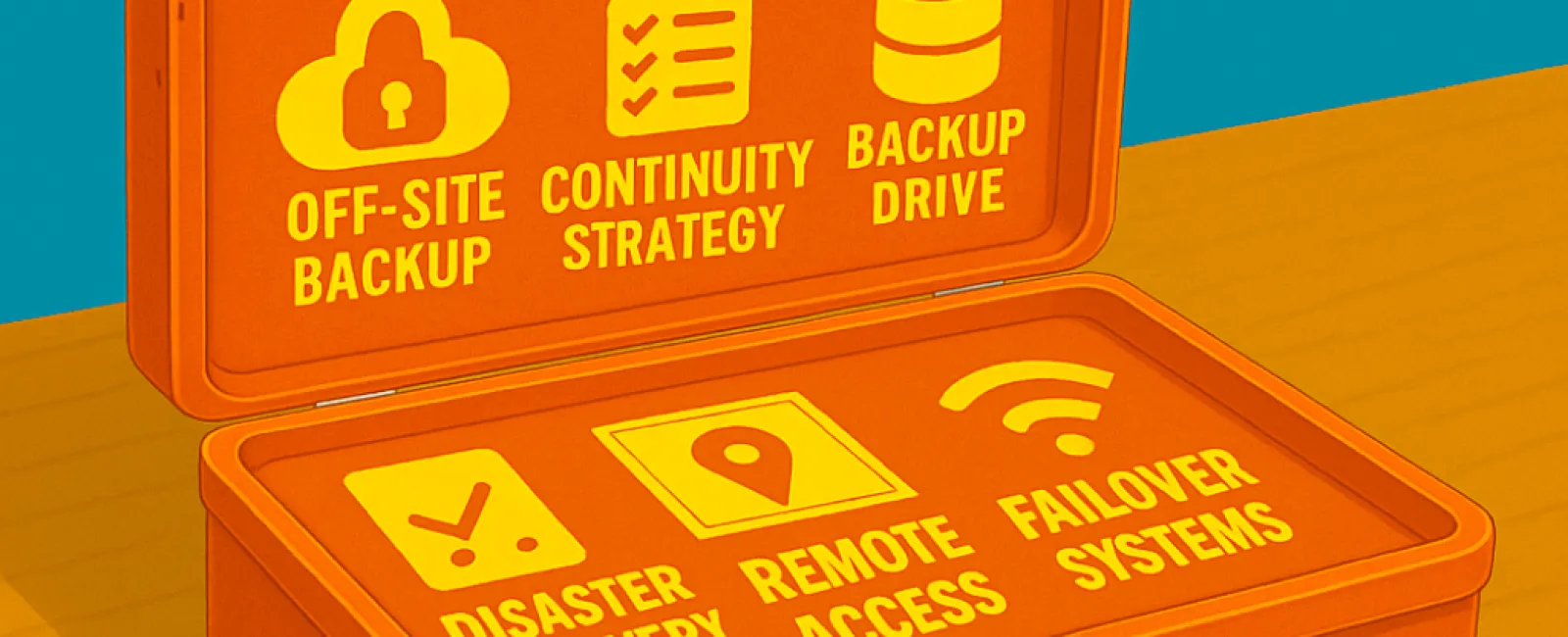July 28, 2025
Unexpected power failures, cyber threats, hardware malfunctions, and natural calamities often strike without warning, causing severe disruptions for small businesses. While many believe that having backups suffices, simply restoring files doesn't guarantee business operations continue smoothly. Without seamless access to systems, support for remote teams, and effective communication with clients, even brief interruptions can lead to prolonged setbacks. Partnering with a dependable IT provider means more than just backups—it means having a comprehensive strategy to keep your business running under any circumstance.
Backups Alone Aren't Enough—You Need a Robust Continuity Strategy
Backups are critical, but they represent only one piece of the puzzle. What truly safeguards your business is a well-crafted business continuity plan—a forward-thinking approach designed to maintain operations during and after unexpected disruptions.
When systems fail, files become unreachable, or your workplace is compromised, relying on a backup stored locally offers limited assistance. Without a swift and clear recovery plan, your business risks significant financial losses, damage to reputation, and regulatory non-compliance.
Understanding the Difference: Backups vs. Business Continuity
Many businesses make this critical mistake:
●
Backups focus on data restoration.
●
Continuity ensures your business stays fully operational no matter the challenge.
An effective continuity plan addresses vital questions such as:
●
What is our recovery time objective?
●
Where will our team operate if the office is inaccessible?
●
Which systems are essential for mission-critical functions?
●
Who is responsible for initiating the recovery process?
Key components of a solid plan include:
●
Encrypted, off-site, immutable backups
●
Clearly defined recovery objectives (RTO/RPO)
●
Preparedness for remote work scenarios
●
Redundant infrastructure and automatic failovers
● Routine disaster recovery drills and testing
If your IT provider cannot confidently guide you through these essentials, you're not truly protected—you're just fortunate so far.
Could This Really Happen to Your Business?
This is not just a scare tactic; these are genuine risks with real-world impacts. Recent events include:
●
Florida hurricanes forced hundreds of businesses to shut down, especially those without cloud-based access.
●
North Carolina flooding wiped out on-site servers, erasing valuable data including invoices and records.
●
California wildfires destroyed entire office buildings, many lacking off-site recovery solutions.
●
Numerous small businesses targeted by ransomware attacks discovered their backups were either corrupted or untested.
Disasters don't discriminate by size—businesses of all scales face these threats daily.
Essential Questions to Ask Your IT Provider Today
If disaster strikes tomorrow, can your business keep running?
Make sure to ask your IT partner:
●
How quickly can we recover from a ransomware attack?
●
Are our backups regularly tested and comprehensive?
●
What's the contingency plan if a flood or fire disrupts our office?
●
Is our continuity plan aligned with industry compliance standards?
●
Can we maintain client services if our team must work remotely?
If you can't answer these with confidence, your business may already be vulnerable.
Disasters Are Inevitable. Downtime Isn't.
While you can't prevent every outage, storm, or cyberattack, you can control how your business responds.
A competent IT provider helps you recover quickly.
An exceptional one ensures your business never misses a beat.
Curious about your current preparedness?
Click Here or call us at 404-719-5222 to schedule your FREE 15-Minute Discovery Call and let's ensure your business stays resilient, no matter what.



